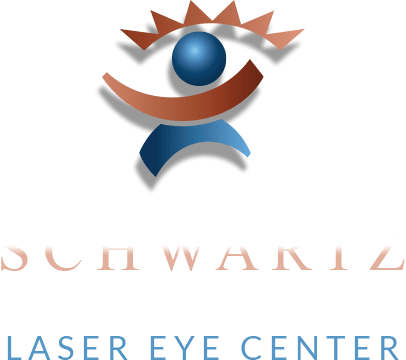How Your Prescription Affects Refractive Surgery Options
Posted on May 15, 2025 by Schwartz Laser - LASIK

Refractive surgery describes several advanced procedures for correcting common vision issues such as nearsightedness (myopia), farsightedness (hyperopia), and astigmatism. At Schwartz Laser Eye Center in Scottsdale, Mesa, and Glendale, AZ, Dr. Jay Schwartz and Dr. Orry Birdsong offer a range of solutions tailored to your unique eyes. One of the key factors in determining an appropriate refractive surgery is your current glasses or contact lens prescription.
What Are Refractive Errors?
A refractive error occurs when the shape of your eye prevents light from focusing properly on your retina. This leads to blurred vision at various distances. People with myopia typically have difficulty seeing distant objects clearly, while those with hyperopia may struggle with nearby vision. Astigmatism, caused by an irregular curvature of the cornea or lens, may affect vision at all distances. The degree and type of refractive error are measured during an eye exam and are central to identifying the most appropriate surgical approach.
Procedures Offered at Schwartz Laser Eye Center
Our practice offers several refractive procedures designed to address a wide range of prescriptions:
- LASIK: This widely performed procedure reshapes the cornea to improve how light is focused onto the retina. LASIK is commonly recommended for patients with mild to moderate myopia, hyperopia, or astigmatism, depending on corneal thickness and overall ocular health.
- PRK (Photorefractive Keratectomy): PRK is suitable for many of the same refractive errors as LASIK and may be considered in cases where a patient’s cornea is thinner or their lifestyle necessitates an alternative technique. The visual goals are similar, though the approach to the corneal surface differs.
- EVO+ ICL (Implantable Collamer Lens): ICLs are often used for patients with higher prescriptions, particularly when laser vision correction is not advised due to corneal shape or prescription strength. This procedure involves placing a biocompatible lens inside the eye, preserving the cornea’s structure.
- Clear Lens Exchange (CLE/RLE): For patients with significant farsightedness or age-related changes in vision, CLE/RLE replaces the eye’s natural lens with an artificial intraocular lens (IOL). This may be especially suitable when presbyopia is present or when laser procedures are not ideal.
Custom Evaluations for Precise Recommendations
The selection of a refractive surgery method depends not only on your prescription but also on several diagnostic factors, including corneal curvature, thickness, pupil size, and overall eye health. The ophthalmologists at Schwartz Laser Eye Center conduct detailed pre-operative assessments using the latest imaging and measurement technologies to guide you toward the most effective solution.
Schedule a Comprehensive Refractive Surgery Consultation
If you are in Scottsdale, Mesa, or Glendale, AZ, and would like to reduce your dependence on glasses or contacts, we invite you to schedule a refractive surgery evaluation at Schwartz Laser Eye Center. Our doctors provide detailed testing and personalized insights to determine which procedures align best with your prescription and vision goals. Contact us at (480) 483-3937.



